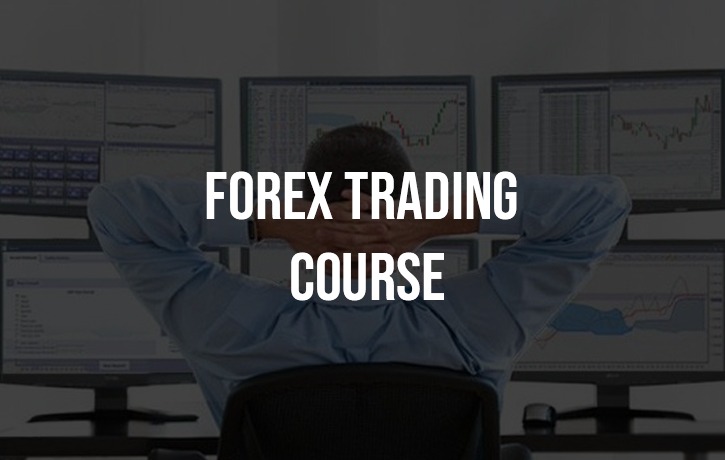Just how to Select the Right Forex Trading Course for Beginners and Experts
Just how to Select the Right Forex Trading Course for Beginners and Experts
Blog Article
Comprehending the Principles of Money Exchange in Today's Global Market
In an increasingly interconnected global economic climate, realizing the fundamentals of money exchange is crucial for stakeholders across different markets. As central banks apply impact and technological innovations improve money trading, the ramifications for global commerce are far-ranging.
The Fundamentals of Money Exchange
Currency exchange is a basic aspect of the global economic situation, promoting global trade and investment. It entails the conversion of one money into an additional and is essential for businesses, federal governments, and individuals who participate in cross-border deals. The currency exchange process occurs in the international exchange market (Forex), which is the biggest and most liquid financial market in the globe, running 24 hr a day, five days a week.
At its core, currency exchange is driven by supply and demand dynamics. Currencies are traded in pairs, such as EUR/USD or GBP/JPY, and the exchange price between them shows just how much one money is worth in regards to one more. This price changes continuously because of trade flows, resources motions, and various other market activities.
Participants in the Foreign exchange market variety from big banks and multinational companies to specific capitalists and vacationers. Each participant might have various goals, such as hedging versus currency exchange rate danger, speculating on money activities, or helping with worldwide acquisitions. Comprehending the essentials of money exchange is crucial for making informed decisions in the worldwide market, as currency exchange rate can dramatically impact the cost of goods and services, investment returns, and economic stability.
Elements Influencing Exchange Rates
Greater rate of interest rates supply loan providers far better returns family member to other nations, attracting even more foreign capital and creating the currency to value. On the other hand, inflation rates play a vital role; money in countries with reduced inflation prices have a tendency to appreciate as acquiring power increases loved one to higher-inflation economic climates.
Economic growth and security likewise significantly influence currency exchange rate. A durable economy brings in foreign financial investment, boosting need for the domestic money, which leads to recognition. Additionally, profession balances impact money value. A country with a significant profession surplus normally sees its currency appreciate as a result of increased foreign need for its products and solutions, while a profession deficit can deteriorate the money.
Political security and economic efficiency are important as well; countries viewed as low-risk destinations for financial investment often tend to see their currencies appreciate. forex trading course. Market supposition can additionally drive currency exchange rate fluctuations, as investors prepare for future motions based upon existing financial indications and geopolitical occasions. These variables jointly contribute to the dynamic nature of exchange prices in the international market
The Duty of Reserve Bank

Reserve banks additionally take part in fx treatments to deal with too much volatility or imbalances in currency exchange rate. These interventions could include acquiring or marketing foreign currencies to keep a preferred exchange rate degree. Additionally, main financial institutions hold considerable fx gets, which can be deployed strategically to sustain their currency.

Innovation and Money Trading
While reserve banks shape the overarching landscape of money exchange, technological innovations have changed the technicians of currency trading itself. The expansion of electronic systems has democratized accessibility to fx markets, enabling private investors to participate together with institutional financiers. Online trading platforms, furnished with real-time information and analytical tools, help with informed decision-making and have added to raised market liquidity.
Algorithmic trading, powered by sophisticated software application, has actually transformed the rate and performance of money trading. Formulas execute trades Look At This based on predefined criteria, lessening human intervention and reducing the time required to maximize market motions. This automation improves accuracy in trade execution and aids in the management of complex trading techniques. Furthermore, the rise of synthetic knowledge and artificial intelligence algorithms offers predictive analytics, permitting investors to prepare for market fads with better precision.
Blockchain modern technology additionally guarantees a transformative influence on money trading. By ensuring transparency and decreasing deal expenses, blockchain can simplify settlement processes, this article possibly mitigating dangers related to typical trading approaches. Cryptocurrencies, underpinned by blockchain, have presented a new measurement to money trading, prompting market individuals to adapt to an advancing monetary ecosystem. As innovation remains to progress, its influence on money trading will likely deepen, forming future market dynamics.
Effect On Global Trade
In the interconnected landscape of international trade, money exchange plays a pivotal function in forming economic connections in between nations. Currency exchange rate affect the cost of exporting products and solutions, affecting affordable placing in worldwide markets. A solid money can make a nation's exports a lot more pricey and less appealing on the international stage, potentially reducing market share. On the other hand, a weak money can boost export competition but may enhance the price of importing vital items, impacting trade balance.
Currency fluctuations can also result in economic uncertainties, making complex long-lasting planning for international companies. Businesses usually hedge against these risks via economic instruments to support expenses and incomes. Exchange rates influence international straight investment (FDI) decisions, as capitalists look for desirable problems to optimize returns, affecting capital moves throughout borders.
Additionally, governments strive to keep steady currency exchange rate to foster foreseeable trading conditions, occasionally interfering in fx markets to achieve financial goals. Reserve banks may adjust rates of Bonuses interest or execute monetary plans to influence currency toughness, thereby influencing profession dynamics.
Verdict
An extensive understanding of money exchange principles is important for navigating the intricacies of the worldwide market. Exchange prices, formed by interest rates, inflation, and economic growth, are critical in figuring out money appraisals.
Report this page